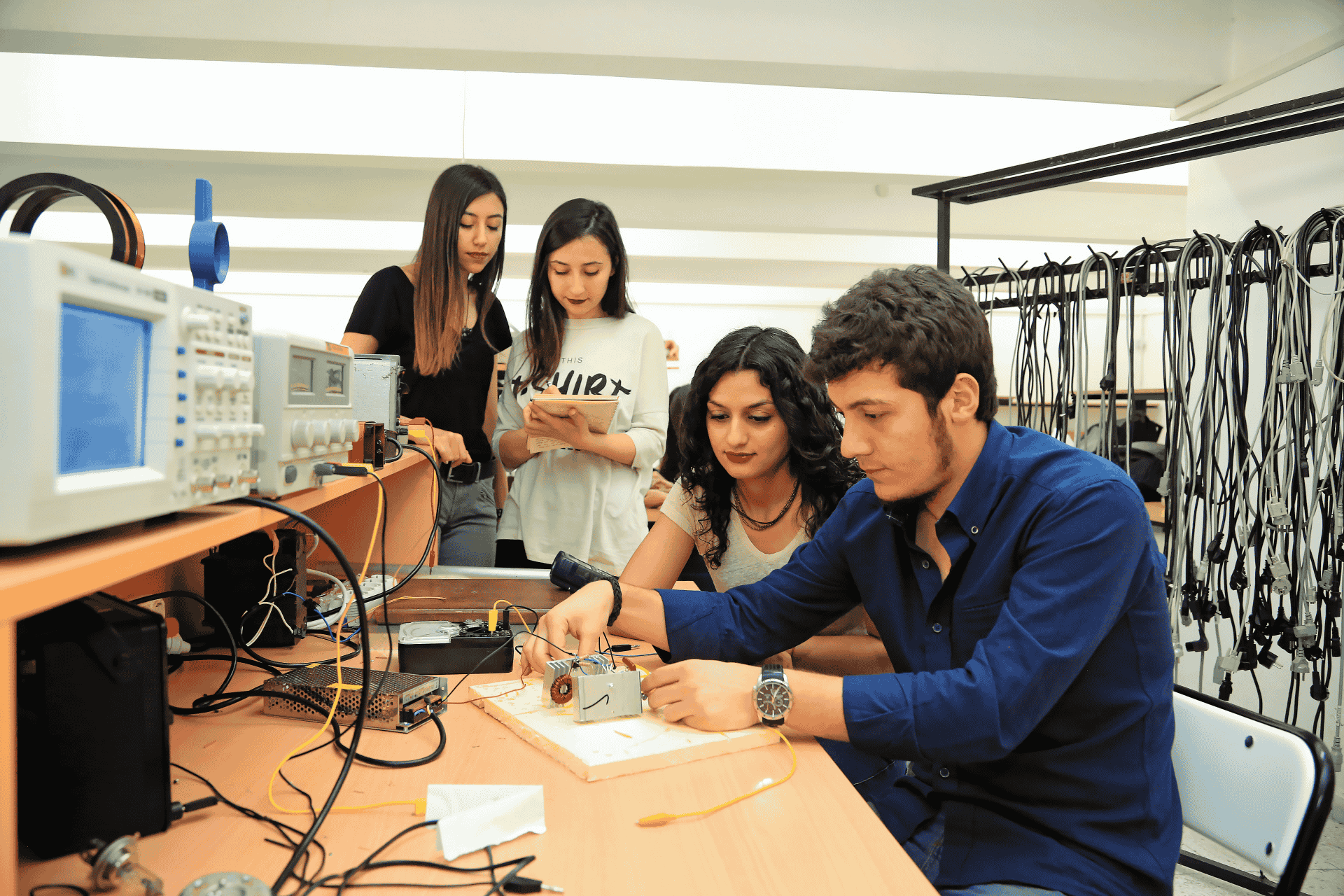Loading
Loading
Diploma in Electronics & Communication Engineering (ECE) is a skill-focused technical program that trains students in the design, installation, and maintenance of electronic circuits, devices, and communication systems. It provides hands-on training in electronics, telecommunications, and embedded systems, preparing graduates for entry-level engineering roles in industries like telecom, broadcasting, consumer electronics, and automation.

A diploma in ECE typically lasts 2–3 years and is ideal for students who want to enter the workforce quickly while building strong technical foundations. The course combines classroom learning with laboratory sessions and industry internships. Graduates can work as electronics technicians, communication engineers, or service engineers, or they can continue their education in a bachelor’s degree program in ECE or related fields.
Diploma programs abroad usually cover:
Basic Electronics – Semiconductors, diodes, transistors, and circuit theory.
Digital Electronics – Logic gates, flip-flops, and microprocessors.
Communication Systems – Analog, digital, and wireless communication technologies.
Embedded Systems – Microcontroller programming and integration.
Signal Processing – Basics of filtering and signal analysis.
Industrial Electronics – Automation, sensors, and instrumentation.
Practical Training & Projects – Real-life electronics or communication-based projects.
Electronic Devices & Circuits
Digital Electronics
Communication Engineering (Analog & Digital)
Microprocessors & Microcontrollers
Antennas & Wave Propagation
Optical Fiber Communication
Embedded Systems Basics
Industrial Electronics & PLC Fundamentals
Signal Processing Fundamentals
Popular Countries:
Canada – Strong polytechnic and applied technology programs.
Australia – Emphasis on industry collaboration and hands-on skills.
United Kingdom – Diploma-level qualifications with work placements.
Singapore – Technology-driven programs with global industry links.
New Zealand – Practical training and small classroom sizes.
Top Institutions:
Humber College – Canada
TAFE NSW – Australia
Singapore Polytechnic – Singapore
British Columbia Institute of Technology (BCIT) – Canada
Unitec Institute of Technology – New Zealand
Glasgow Kelvin College – UK
SAIT Polytechnic – Canada
At Exter Education, we are more than just an institute — we are a launchpad for future leaders, thinkers, and doers. Whether you’re looking to upgrade your career, master a new skill, or explore your passion, we’re here to guide your journey.
Got Questions? Call us
Enter your email and we’ll send you
more information